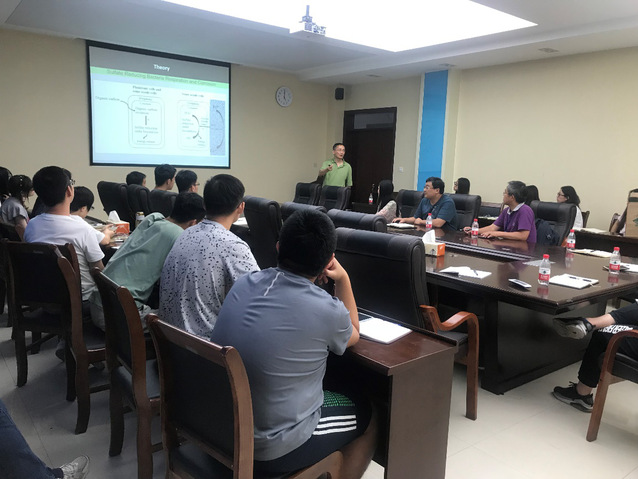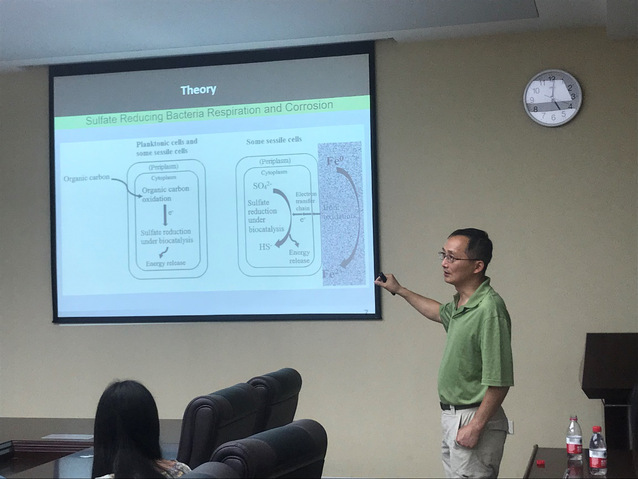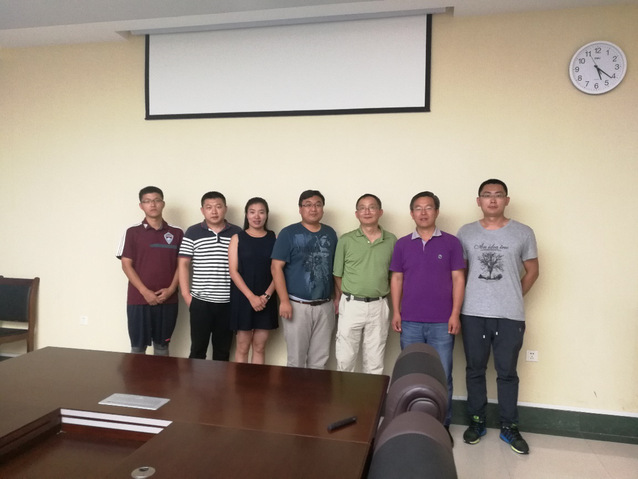
On July 18, 2018, the academic seminar on Corrosion and Protection of Marine Materials hosted by the School of Materials Science and Engineering was held in Conference Room 211 of the Materials Building. The meeting was chaired by Professor Chen Shougang, and Professor Tingyue Gu from Ohio University was invited to make an academic report. Some teachers of our college, the Institute of Oceanology of the Chinese Academy of Sciences and many graduate students participated in the academic seminar.
Professor Tingyue Gu titled A sea anemone-inspired novel agent for eco-friendly biofilm treatment, from the mechanism of microbial corrosion: The extracellular electron transport mechanism (ET-MIC) and metabolic product corrosion mechanism (M-MIC) were used as starting points to reveal the corrosion mechanism of different metal materials by microorganisms. The report also describes a new antimicrobial peptide inspired by sea anemone as a fungicide enhancer. Combining the adhesion of Sulfate reducing bacteria, Acid producing bacteria and general heterotrophic bacteria to the surface of the sample and the corrosion of the substrate, It was proved that only A very small amount of Peptide A could greatly reduce the amount of fungicide used, thus effectively reducing the degree of microbial corrosion on the metal matrix.
During the meeting, Tingyue Gu and other teachers and graduate students had a warm discussion and exchange on the mechanism of microbial corrosion.

Report the scene

Group photo


